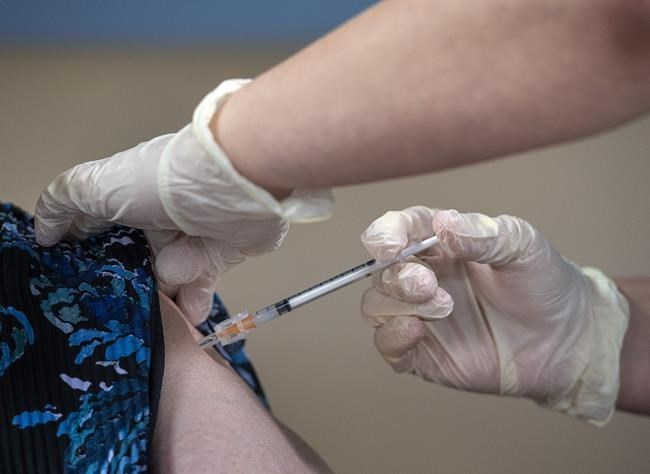The First Nations Heath Authority (FNHA) has vaccinated more than 4,000 people living in 19 remote and rural First Nations communities in the province against COVID-19.
On Thursday, FNHA acting chief medical officer Dr. Shannon McDonald said that number will be growing rapidly over the coming weeks.
"As of this week, we have 19 communities that have received vaccine... by next week it will be closer to 60," McDonald said.
The province has committed to ensuring that all of the roughly 55,000 people living on 203 reserve communities in the province will be able to get vaccinated against the disease if they choose to, McDonald said.
Remote and rural First Nations – which describes many of the First Nations communities in northern B.C. – will be at the top of the list in terms of receiving doses of the vaccine, McDonald said. However, the First Nations Health Authority won't be releasing the names of the communities where vaccine is being distributed, she said.
"We were concerned when we started to release vaccine, that might travel to communities to receive the vaccine," McDonald said. "(And) we don't have service responsibility for First Nations people living off-reserve, or away from home – which is the term we prefer to use. For those living further away, or in urban settings, it is a matter of partnering with regional health authorities."
If indigenous communities – like the Tsilhqot’in National Government, which announced vaccine clinics would be coming to its six communities this week – want to make the information public about their vaccination campaigns, that is up to them, McDonald said.
Several First Nations communities in the province have banned people living outside the community from visiting during the pandemic. However, for some First Nations – especially those located close to towns and cities – the division between on-reserve and away from home isn't clear-cut, FNHA acting deputy chief medical officer Dr. Nel Wieman said.
"We are strongly advocating for all indigenous people to be vaccinated as a priority group," Wieman said.
The First Nations Health Authority is working to provide clear and accurate information about the vaccines to the communities they serve to combat vaccine hesitancy, Wieman said.
"We are also focusing on the some of the mental health and wellness (impacts) of the pandemic," she said.
Indigenous communities have faced additional stresses not faced by all non-indigenous people during the pandemic, she said. In cases when a COVID-19 outbreak has been declared in an indigenous community, some members of those communities have faced "a racism-infused backlash," from neighbouring communities, Wieman said.
"There is just no place for racism in anybody's response to the pandemic," she said.
FNHA chief nursing officer Dr. Becky Palmer said when vaccine clinics come to remote First Nations communities, their approach is to vaccinate everyone, rather than just those most at risk of serious health consequences.
"We know it's the way we can best protect our elders, it that whole-community approach," Palmer said.
Like every public health agency in Canada, the First Nations Health Authority's vaccine campaign will depend heavily on when supply is available, she said.
"The timeline is really contingent on availability," Palmer said. "Quite frankly, the sooner the better."
On Thursday, provincial health officer Dr. Bonnie Henry added her voice to those calling for an end to discrimination against Indigenous people.
"This type of racism must not be tolerated," Henry said. "Racism has no place in our society."
Henry urged British Columbians to watch a short video produced by Margo Greenwood, vice president of Indigenous health for Northern Health, called Healing in Pandemic Times: Indigenous Peoples, Stigma and COVID-19.



